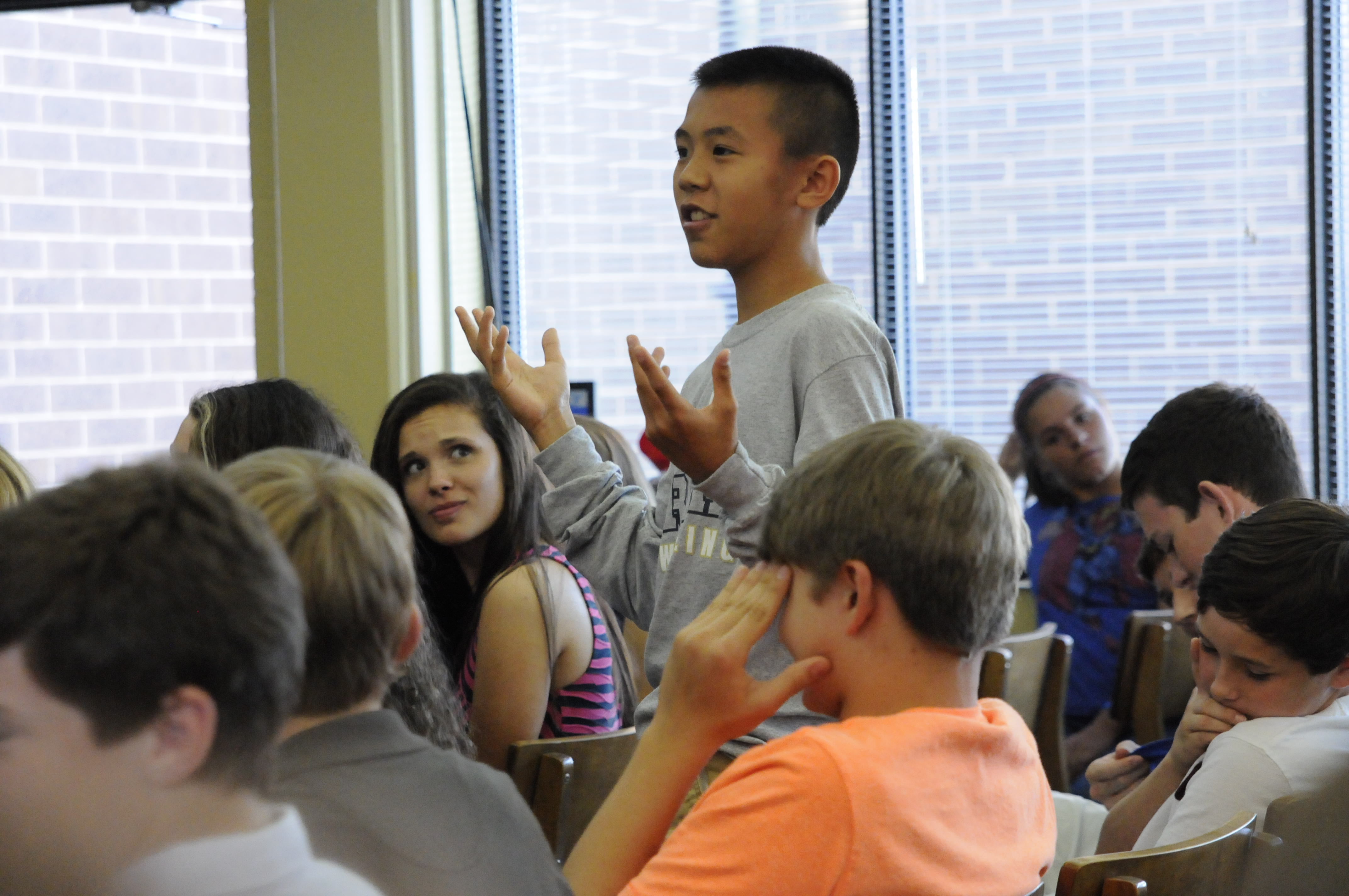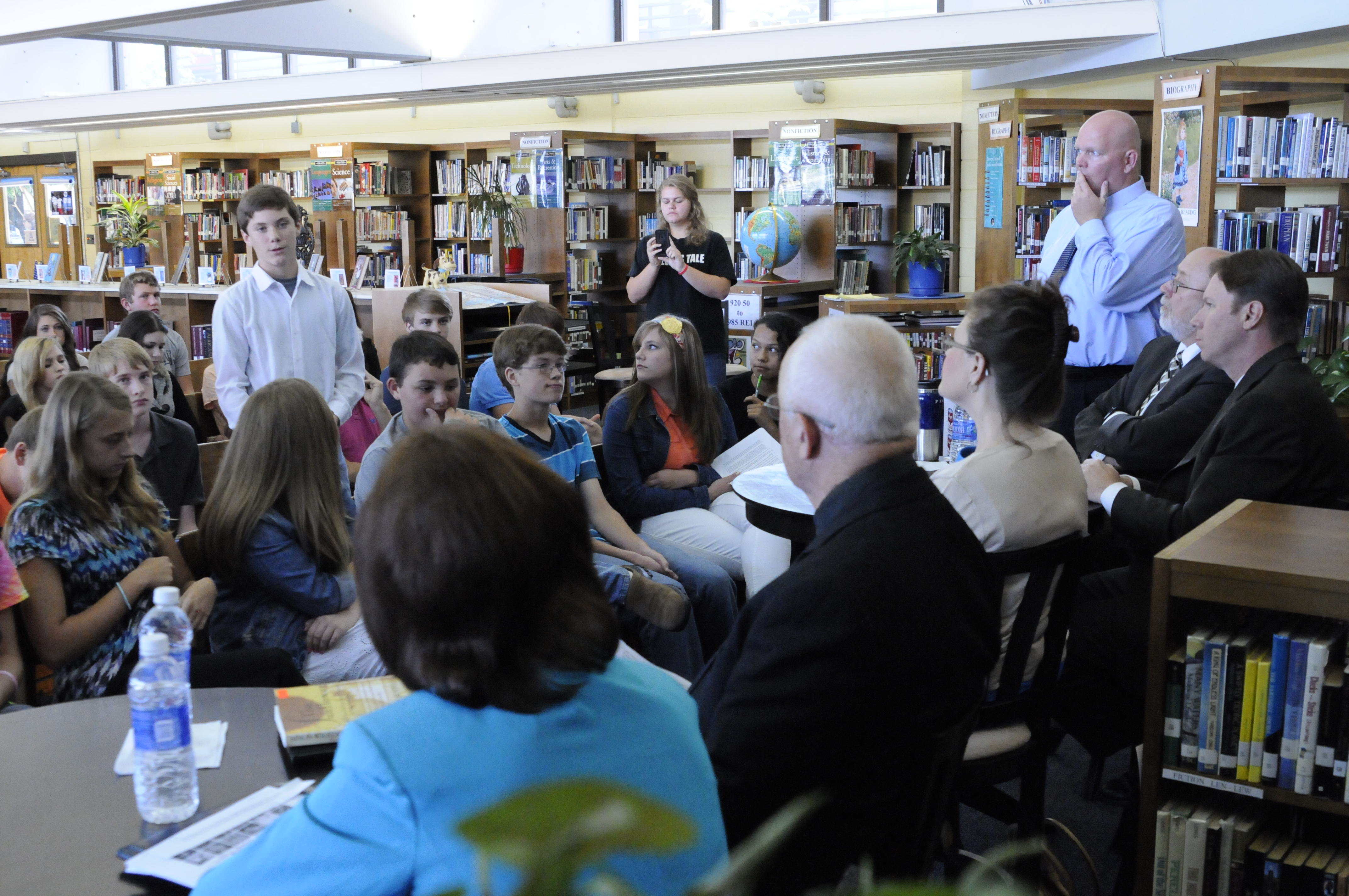Things got deep during a book discussion in a Monday English class at Soddy-Daisy High School.
The conversation between two classes of ninth-graders and a panel of local leaders went far beyond the plot, theme and narrative arc of Simon Wiesenthal's "The Sunflower: On the Possibilities and Limits of Forgiveness." In the book, a dying Nazi solider brings Wiesenthal, a concentration camp prisoner, to his deathbed and asks forgiveness for crimes against the Jews. Wiesenthal says nothing and leaves the soldier's bedside, but later questions his own response.
Aside from the author's story, the book contains essays from various religious and social leaders on whether forgiveness should have been granted. And on Monday, students heard differing views from a priest, a news anchor, the Chattanooga mayor, a lawyer and academics. The adults and the students took turns weighing in on the role of human forgiveness. But the conversation eventually touched on everything from mob mentality to religious beliefs to bullying.
"You forgive," said Monsignor Al Humbrecht, of Soddy-Daisy's Holy Spirit Catholic Church. "But we have to remember so that we don't repeat those same mistakes."
Lauren Ingraham, a professor of English at the University of Tennessee at Chattanooga, told the students that life is really a series of small daily choices. The Nazi in the story took many incremental steps down the wrong path before committing atrocities, she said, and that's why it's important to always remain vigilant.
"You have these moments when you realize something went terribly wrong," Ingraham said.
Students openly debated the concept of forgiveness, both in the hypothetical case of the book and the practical sense of how they forgive each other's transgressions. They were urged to speak up against wrong, whether in the school's common area or in class.
Ninth-grader Breanna Fowler said she originally thought she would have forgiven the man in the story. But after hearing from the panel and other students, she said she changed her mind. Sometimes forgiveness isn't yours to give.
"Yes, you should forgive. You know it's right in your heart," she said. "But doing what they did -- how gruesome, how awful."
English teacher Trevor Fuller said such meaningful conversations are common in his English classes, mostly because of the honesty and enthusiasm of his students.
"Literature is worthless if you can't think about it and talk about it," he said.
Contact staff writer Kevin Hardy at khardy@timesfreepress.com or 423-757-6249.



